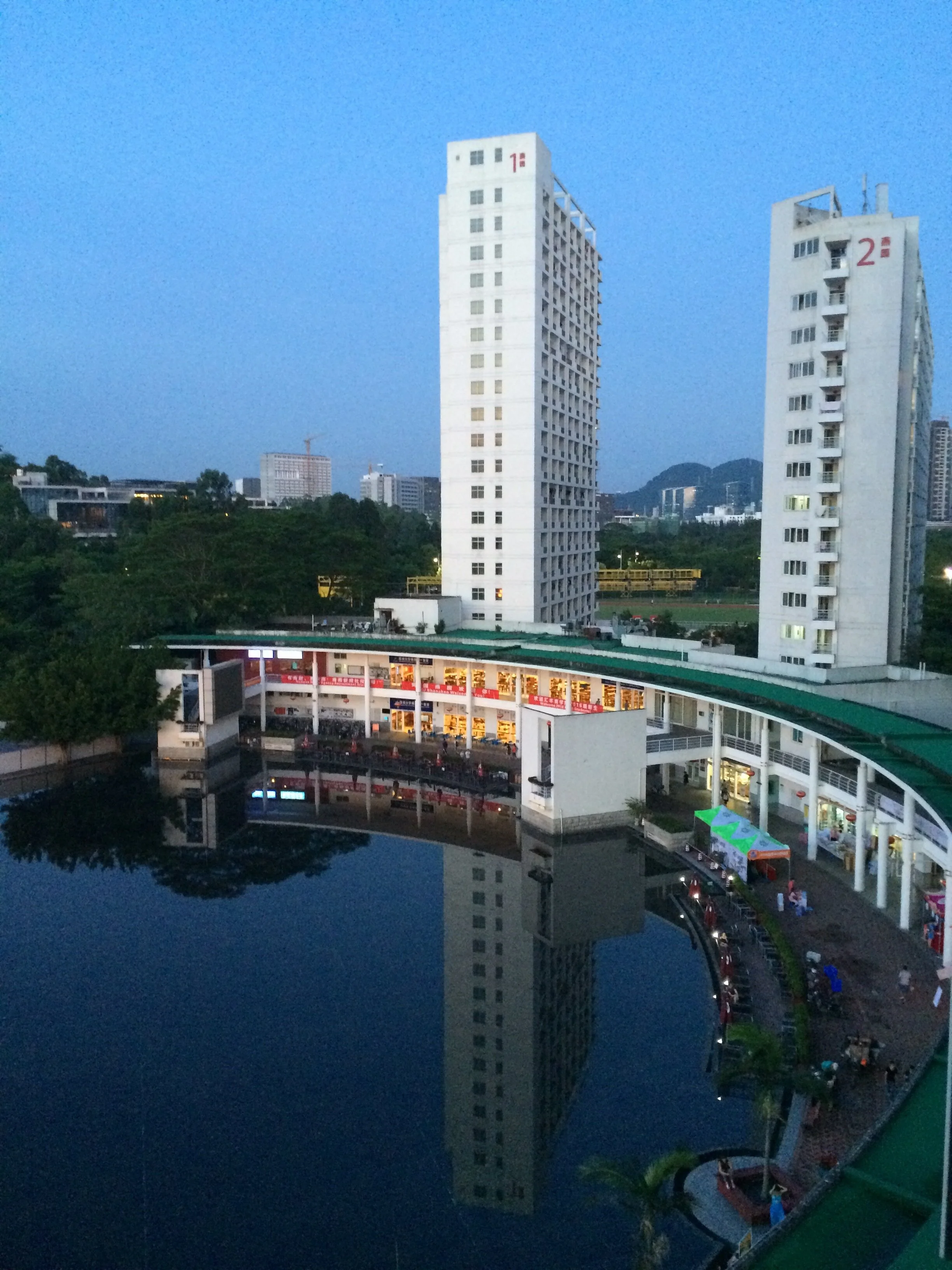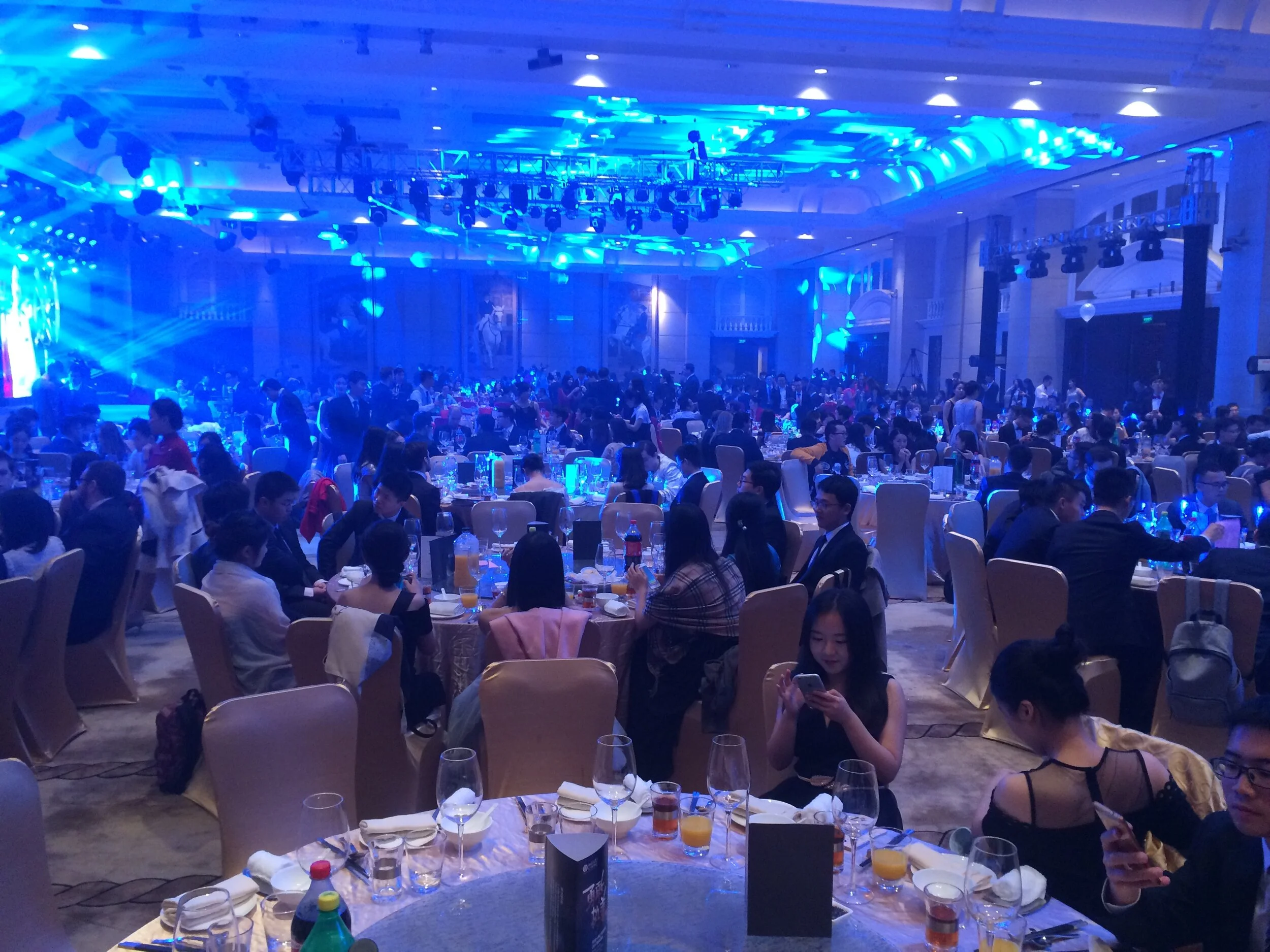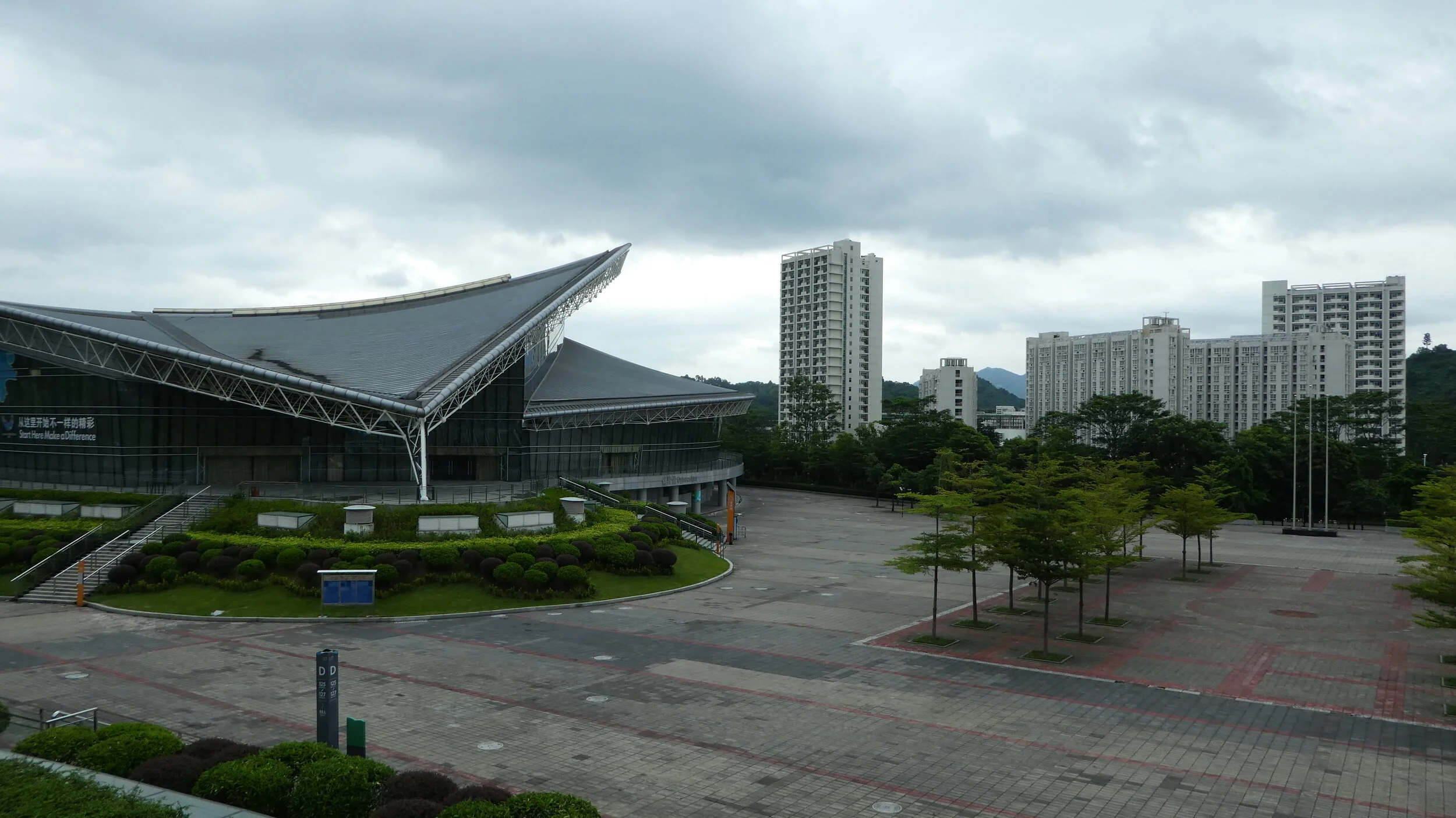Exchange semester in Shenzhen - China
As part of my Master of Science degree in Management and Marketing I had to spend an exchange semester abroad. I wanted to be far away from home and gain a very different experience far from the west, this is why I chose the Peking University HSBC Business School (PHBS in the following) in Shenzhen, China. Yesterday I wrote an article about the city Shenzhen itself. In the following I will give my impressions about different exchange related topics. If you are interested in an exchange semester in China or even better at the PHBS you must read the following.
Introduction week and accommodation
As exchange students we arrived a week before the Chinese students did because we had different events, like a snippet hunt though the city, a tour around campus, we got presentations about the Chinese culture and culture shock, got help by applying for a temporary residence visa, they opened a bank account for us and so on. I was really glad for this help, because we would have been lost without it if you can’t even read what some forms say. I highly recommend to take part in this two introduction weeks and definitely get the residence visa. If not, you are not allowed to leave mainland China during the whole stay. It is not expensive and even if you have to undergo a lot of medical tests it is worth it, especially if like us you want to visit Hong Kong or Macau that are just around the corner. A few decided not to apply for it and couldn’t go with us for diverse weekend trips. I must say, both the preparation before the exchange, where we got diverse information and schedules, as well as the whole stay was organized really well by a few international employees who where in charge to take care of us. I had the comparison to my other fellow students from Germany who went to different universities in multiple countries and sometimes had almost no information in advance. Some did not even know where to stay whereas we got to apply for a dorm ahead of time. I got a single dorm, which in 2016 was below 250€ for the whole semester, so very much affordable! They have about 15 square meters including a small bathroom with a shower, a bed, a cupboard, a desk and each apartment had a balcony. Fore me that was more than enough and I was happy about the western style toilet. Normally you squat above a hole in China. The shared dorms are for two international students, but only four students I know choose that option. On the contrary the Chinese itself had no option but to sleep in a dorm for four which had the same size as my room. I have now clue how they could sleep so close to each other. By the way, the first week at PHBS also included an organized IKEA trip where you could buy what was missing in your room. Most former exchange students sold their stuff in advance through email lists, so I already bought a package with everything I needed ranging from bed linen to a water heather and other stuff. If you have the chance to do that, go for it, it saves you a lot of stress. Yes, a kitchen is not included, but the cafeterias offer diverse options and are really affordable. I started to eat oatmeal after a while because I couldn't get used to the Chinese breakfast, especially as a vegetarian. I loved the other meals though and because they eat almost no sweets and no diary products I also lost some weight during the semester. Lucky me.
At the same time the introduction weeks where excellent to get to know each other before starting with the classes. Quickly we made friends. Around 50 exchange students, 50 international students that would do the full master in China and another 50 international students from the second year build up a big international group. Sadly, most of us, me included mingled with the known and did not made many Chinese friends. I only had two Chinese friends with whom I met on a regular basis for a tea of coffee, as they wouldn’t go out. Instead my close friends came from Switzerland, Poland, Ukraine, Italy, Belgium, Mexico and of course Germany. Anyway, I tried to speak as less German as possible. So still multicultural. Following some impressions of the dorms and its surroundings.
By the way, I got some financial blessings for this exchange as well. As a German I got Bafög from the state of Germany, that is given to students of families with less financial capabilities. Additional to that I got a CSC sponsorship from China which was around 480€ each month. I had to apply for it well in advance. With both I could easily afford the living costs in China as well as all the travels I did through China and even Indonesia and Japan during this time.
Events
Not only the introduction was well planned. The PHBS organized diverse events throughout the semester. I was there for the winter semester, but I bet summer is great as well. The first one was a event where each exchange student was assigned a group of Chinese students to perform some physical activities and complete challenges on campus. Due to the humid heat it was a really sweaty but fun way to meet people and the first real interaction with locals. One of the Chinese friends I made was a girl I met that day. She had done an exchange semester in Great Britain, hence her English was pretty good and she was open for different cultures. We met a couple of times to chat and keep chatting though WeChat every now and then (definitely get his app, its the WhatsApp alternative from China and I enjoy it way more). Other events that took place where a mask ball, a beach day with dinner at night, a thanksgiving dinner and a new years ball. Almost all events had it in common that they had different performances of students. They ranged from military performances to singing and dancing to speeches. It seems that the Chinese like entertainment. Back home the main part of a ball is dancing but that sadly only took place shortly at the end and the main parts where the acts and speeches. Still we spend a great time at each event.
Campus
Apart from the organized events we made use of our free time by doing weekend trips to diverse cities in China (posts about each of the cities will follow in the next few days), we explored Shenzhen, we partied either at the campus by sitting at the mirror lake or at the clubs and bars in the city. Check out my post about Shenzhen for the diverse possibilities this city offers. One of my favorite activities was a day at the beach. For that we mostly choose Wednesdays, because the internationals had this day off and it was emptier than on the weekends. This was due to the military training of the Chinese and we were glad for a day off in the middle of each week. The campus also has a lot to offer, especially if you love sports. You can easily play tennis, soccer or badminton on diverse special courts, go swimming or hit the gym. All of that for a very low cost, that is why most of us used it often and each found a sport they liked. Another pro for weight loss and getting fit, just saying ;)
Classes and different standards
Since the Chinese have very different social behavior to what I am used to it was easier to become friends with other exchange students. They mostly have similar lifestyles. I know, this are some stereotypes and exaggerations, but a lot of the stereotypes I had in my head got confirmed while being in China. Only rich parents can send their kids to the well known and highly ranked PHBS. They mostly have been raised very well secured and their parents have high expectations on them. Most of the native students spent their whole day either in classes, the library or sometimes in the gym to stay fit. They don’t allow themselves much private life (maybe KTV every once in a while, but they'll be home by midnight), prefer to have a nap in the library if they get tired and then keep on learning afterwards. At the same time most of the exchange students on the contrary allowed themselves some free time to recharge and then afterwards did the tasks ahead more focused. I mostly had better grades than the average, even in multiple choice tests, where no stigma could count, with a minimum of time spent on preparing compared to the Chinese students and I wouldn’t consider myself as a natural talent that does not have to learn at all. To me the level of the classes according to the communicated knowledge was lower than from my University in Germany. At the same time the workload was similar, if not even higher. Since the PHBS is a business school most grades do not only arise from one exam, mostly at least three different components where part of it. They consisted of exams, essays, presentations, group assignments, oral participation and so on.
Group works where mostly mixed and internationals spread though the Chinese students. I really liked the possibility to get to know them better but the group work sometimes made it hard to get along well because the standard was so different. In Germany and most of the European countries the motto is "the less, the better" if it comes to essays and presentations, meaning quality over quantity. In China it is the contrary. The Chinese culture is oriented toward consent and less toward individuality. Thus, if you had a group work with Chinese, they would come with 45 slides prepared for a 15-minute presentation, mostly graphs and text taken from other sources without even naming them and way too much information anyone could process or would even be interested in. It seemed that they thought that more equals more knowledge, but since the professors mostly originated from international universities and business schools the western standard was needed. Trying to merge their standard and our sometimes lead to hard discussions, in which they mostly don’t even participate, just agree that they understood and then they did it differently anyway. In general, if a Chinese sais he understands, better make sure he really does by making him summarize, because they are just to polite to say no. We almost always corrected their slides and parts. I know this sounds rude, but we learned pretty fast that this was very important even though it would not lead to being friends. Some had trouble with the language but where not willing to admit it therefore where not able to speak freely in presentations. This led to some chaos when they wrote down very word they wanted to say in advance, learned it by heart and that is what it sounded like. One of the first presentation I ever had ended after the introduction of the Chinese who was supposed to be only one or two minutes long and ended to fill the whole presentation because he memorized each of the unimportant side facts we cut out of his presentation and wasn’t willing to give the micro to the next speaker in his group. He was deeply hurt when he got hardly criticized from the professor and his fellow students. But who could blame you if you have not learned it otherwise so far. So at the end it mostly ended in internationals doing the work, giving the Chinese a short part they could present, mostly just he instruction or even better the summary at the end and everyone got a good grade and less stress out of it. Of course, there where exceptions, a few of them where really good and I bet they will have a great career. Some of them where willing to take constructive critique and learned fast. Sadly, they were exceptions.
Class participation also was a problem and professors coped differently with it. One knew that only internationals would participate and thus each student got a number assigned and he actually played the lottery for each question and the student had to give his answer. Others asked persons directly without letting the same persons interact in class all the time. Some tried to give pressure by giving grades for participation and since the Chinese are ambitious they tried. When we had classes with the international professors, they had trouble to find an opinion other than the one that was already presented. With Chinese professors on the contrary we where blamed for not respecting science when we wanted to critically discuss a paper we had to read. So now you know where this came from. So, at the end with the Chinese professors we just learned to say what we liked about a theory or a paper instead of naming critical parts. Sad but true. I bet that many of these students have brilliant minds but struggle in school because the think outside the box which seems to not be welcomed in some schools in China. The PHBS itself is mastered after prominent business schools and the teachers try to free the individuality of their students but it’s a tough challenge shaking up learned patterns.
Final thoughts
I don’t know if some people might think that I dramatize or don’t respect the Chinese culture, some that have experienced the same might agree, some might be shocked. Who knows, I am definitely in for questions and discussions. Would go again? Sure I would! Even though my nerves where stretched a couple of times I learned so much about how and how not to interact with different cultures, how to stay open minded, how not to give up and at the same time how blessed I was. I now value the European and Germany way of organizing work even more than before and appreciate some bureaucracy if it leads to better results. I gained a lot of patience, loosened up a bit and got connected even more to some other exchange students who went through similar. The bonds I got with some of them still exist and we have done multiple reunions in Europe and I found really good friends. These trips will also be reposted in this blog in future.
As a final word, I don’t want to negative judge this way of studying as minor to ours, it just enhances a different way of intellect than we do in Europe. Still, China got far and is raising up in many industries starting to think and act more innovative. I think that modern universities like the PHBS, who challenge the Chinese way of studying, play a huge stake in this process. So, thank you very much to all the awesome people I got to meet during the exchange and for all the good and bad experiences I was able to learn from! They shaped the person I am today and I am really grateful for that!






